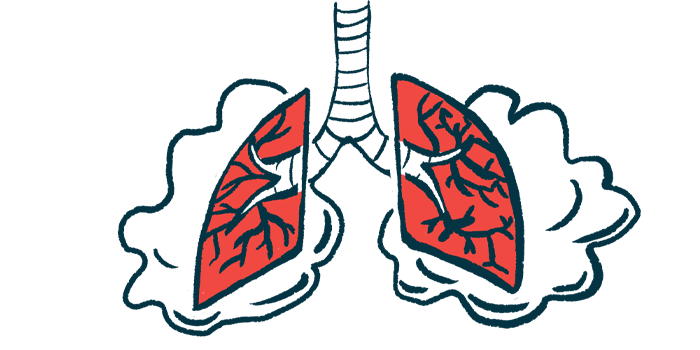Emphysema patients who smoke quicken lung damage: Study
Quitting smoking could help slow progression of lung disease, researchers say
Written by |

Among people with chronic obstructive pulmonary disease (COPD) who have emphysema, individuals who continue to smoke after being diagnosed tend to have faster progression of lung damage, a recent study reported.
According to researchers, these findings imply quitting smoking may help slow lung disease progression.
“We were able to show that emphysema progresses significantly faster in patients with existing emphysema and who continue to smoke,” David Lynch, a radiologist at National Jewish Health and co-author of the study, said in a press release.
The study, “Quantitative CT Evaluation of Emphysema Progression over 10 Years in the COPDGene Study,” was published in the journal Radiology.
Study tracks lung damage progression in current, former smokers
CT scans, a method used to image tissues inside the body, can be used to evaluate lung damage in COPD. However, due in part to variations in equipment and procedures, there’s not much published data tracking how lung damage worsens over time in these patients.
In this study, researchers analyzed data collected as part of the COPDgene study (NCT00608764), a large ongoing study that aims to better understand how genetics influence the risk of developing COPD in people with a history of cigarette smoking.
Their goal was to assess how emphysema — a severe form of COPD characterized by the destruction of the tiny air sacs in the lungs where gas exchanges occur — progressed over time in current and former smokers based on CT data.
Out of 8,431 people in the study, 4,913 were followed for at least five years, and 1,544 were followed for up to a decade. At the start of the study, just fewer than half (49%) of the patients were current smokers, and slightly more than half (53%) had notable emphysema.
Using CT scan data, researchers evaluated the rate of change in adjusted lung density (ALD), a measure of the extent of emphysema. A faster rate of decline in ALD implied faster progression of lung damage.
Results showed the decline in ALD was largest among patients who had emphysema and were current smokers. The rate of decline was at a mean of 1.4 g/L in the first five years of follow-up, and 0.9 g/L in the second five years.
“During the span of 10 years, participants with pre-existing emphysema who continued smoking had the largest decline in ALD,” the researchers wrote.
“Among patients with pre-existing emphysema, the difference in the rate of emphysema progression between current and former smokers shows the need for smoking cessation,” said David Baraghoshi, research assistant at National Jewish Health and the study’s first author.






